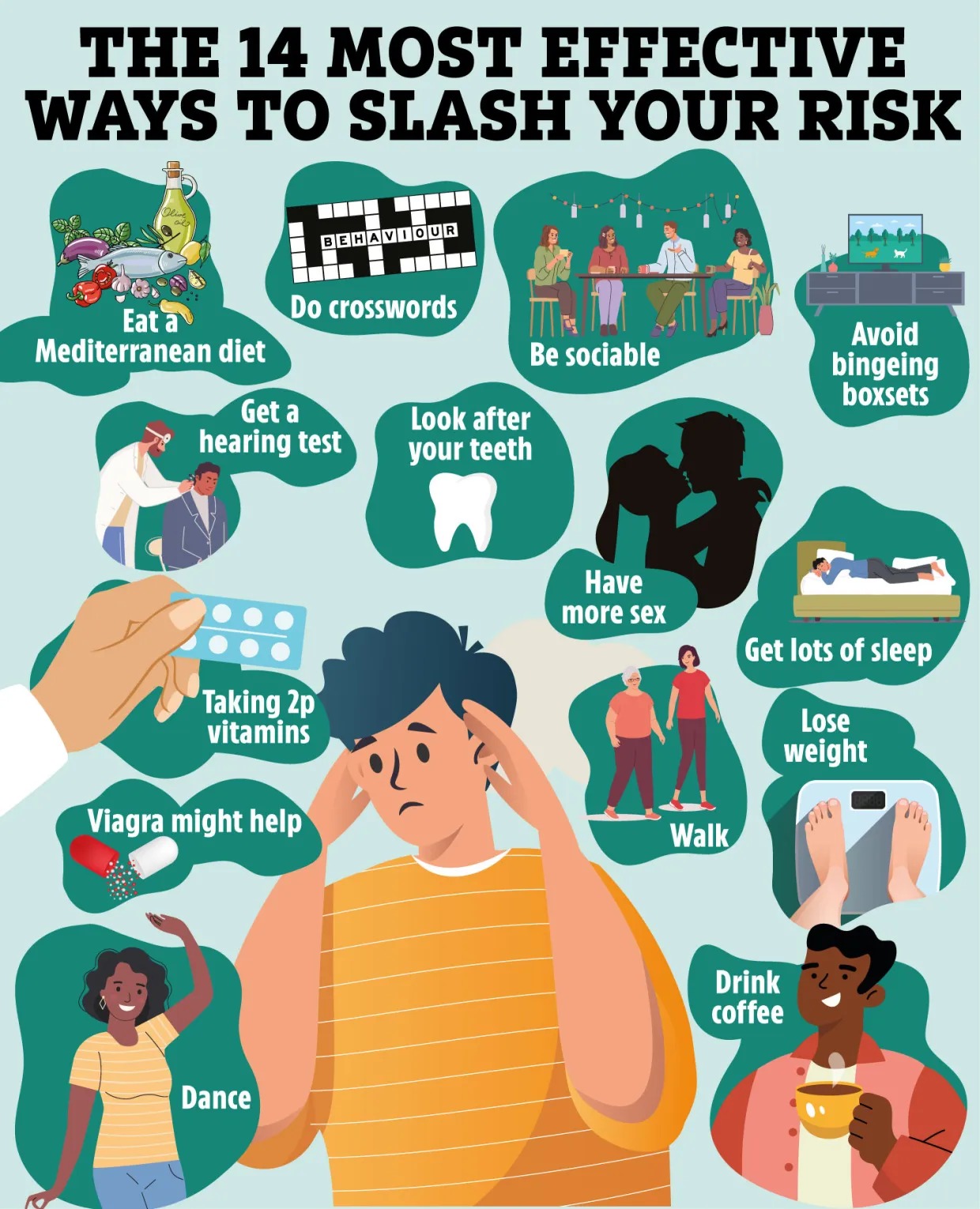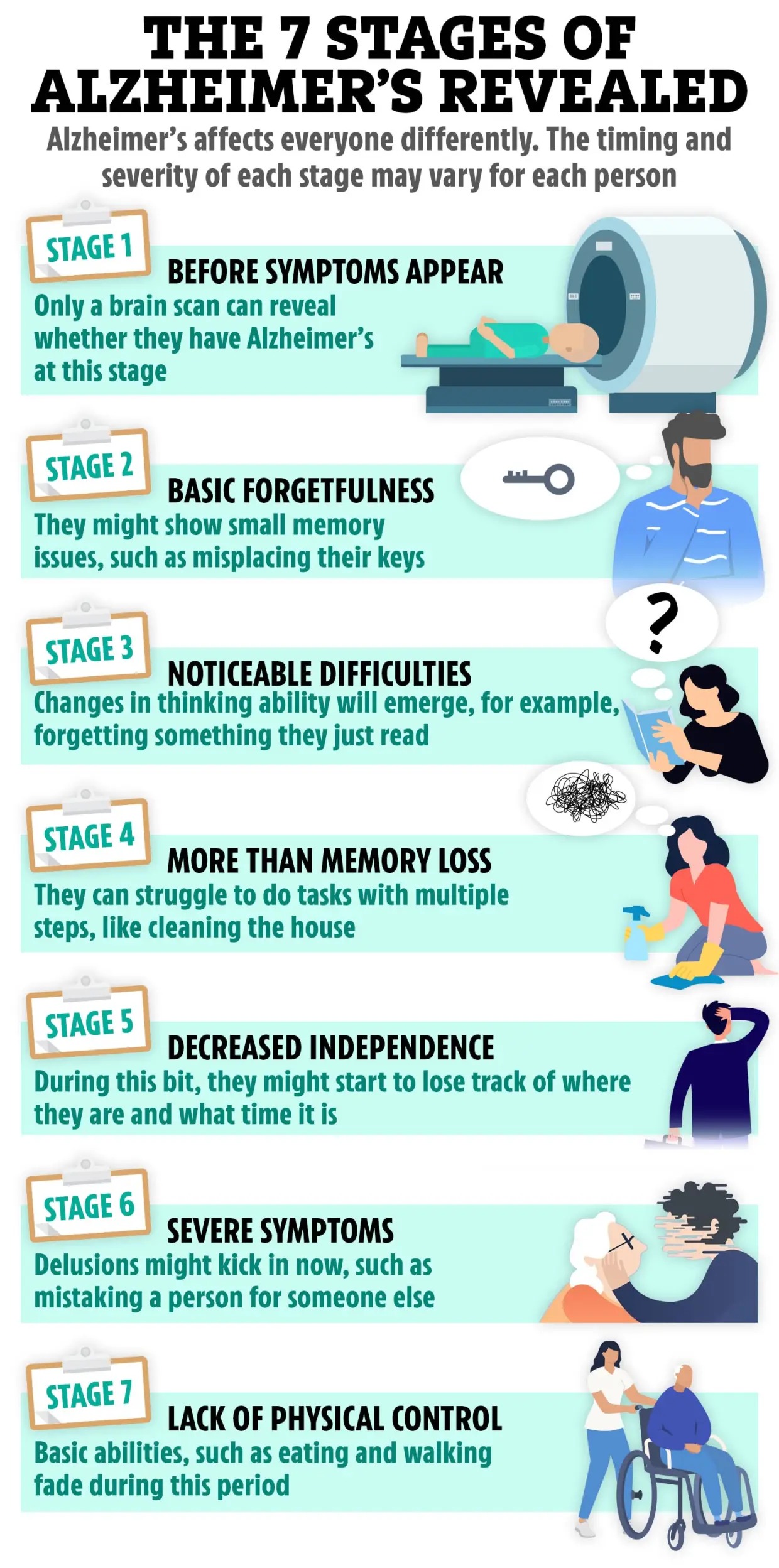Since there’s still no cure for dementia, experts suggest focusing on strategies to reduce the likelihood of developing this devastating condition. While many of us associate staying active with physical health, it turns out that certain jobs can also offer protection for your brain. A recent study discovered that two specific careers are linked to the lowest risk of Alzheimer’s disease-related death.
Researchers from Mass General Brigham explored the role of various professions in Alzheimer’s risk by analyzing national data on workers who had passed away. They reviewed 443 different jobs and found that driving a taxi or an ambulance was associated with a lower rate of death from Alzheimer’s, likely due to the heavy spatial processing these jobs require. These roles involve frequent real-time navigation, which could stimulate the brain’s cognitive mapping processes, potentially slowing Alzheimer’s progression.
The findings, published in The BMJ, shed light on how jobs that demand quick and frequent spatial decisions might help in protecting brain function. “The part of the brain responsible for creating cognitive maps to navigate our surroundings is also linked to the development of Alzheimer’s,” said lead researcher Vishal Patel.
Dementia has been the leading cause of death in the UK for the past 13 years. The number of deaths from dementia rose to 75,393 in 2023, making up 11.4% of all recorded deaths. Factors like smoking, poor diet, little physical activity, and social isolation are believed to contribute to this increase. But don’t worry—there are plenty of other ways to reduce your dementia risk, even if you’re not a taxi or ambulance driver.

Here are 14 practical steps that can help protect your brain and lower your dementia risk:
1. Cut Back on Binge-Watching TV
Spending hours glued to the TV may seem harmless, but a 2018 study found that watching for more than four hours at a stretch could increase your dementia risk by 24%. The researchers suggest opting for more interactive activities like surfing the web, which stimulate the brain more than passive screen time.
2. Challenge Your Brain with Crosswords (Using Your Non-Dominant Hand)
Simple brain games, like crossword puzzles, can reduce dementia risk by up to 9%. A study from Monash University in Australia shows that puzzles and card games help stimulate the brain’s neural connections. For an extra challenge, try doing tasks with your non-dominant hand to engage more brain regions and strengthen connections.
3. Be Social
Socializing isn’t just fun—it’s vital for brain health. Research from University College London shows that staying socially active can reduce the risk of dementia by 30-50%. Meeting new people and spending time with loved ones can delay the onset of cognitive decline.
4. Adopt a Mediterranean Diet
High salt consumption is linked to both heart disease and dementia. The Alzheimer’s Society recommends adopting a Mediterranean diet, rich in fruits, vegetables, whole grains, and oily fish, while cutting back on sugar, meat, and processed foods. Studies suggest this dietary pattern can lower dementia risk by 23%.
5. Lose Weight
Carrying excess weight in middle age can increase dementia risk by up to 30%. A 2020 UK study found that losing just 5-10% of your body weight can significantly reduce the risk. If you’re unsure about your weight, consult your GP or use an NHS test to find out.
6. Take Low-Cost Multivitamins
A study from Mass General Brigham suggests that a simple daily multivitamin, which can cost as little as 2p, may slow brain aging and improve memory. The effects were found to be similar to being two years younger.

7. Have More Sex
Yes, you read that right! Having regular sex can improve brain health by boosting blood flow to the brain, helping to protect against cognitive decline. Research shows that sexual activity is most beneficial for people aged 62-74, while those over 75 benefit from it at least once a week.
8. Drink More Coffee
Good news for coffee lovers! Drinking coffee could help prevent the buildup of Alzheimer’s-related proteins in the brain. A study published in The Journal of Agricultural and Food Chemistry found that coffee could prevent these proteins from forming toxic clumps that damage brain cells.
9. Dance
Dancing isn’t just a fun way to exercise—it’s great for your brain, too. A study published in the Journal of Aging and Physical Activity found that older adults who engaged in six months of ballroom dancing had better cognitive outcomes than those who just walked on a treadmill. The mental challenge of remembering steps, combined with the social aspect, helps stimulate the brain.
10. Consider Viagra (With Caution)
Some studies suggest that men who take Viagra may have a 54% lower risk of Alzheimer’s. A 2021 study by University College London found that men who used erectile dysfunction drugs like Viagra and Cialis had an 18% lower chance of developing dementia. However, it’s important to talk to your doctor first, as Viagra is not suitable for everyone.
11. Walk More
Regular walks can reduce your risk of dementia. According to Claire Steves, a professor at King’s College London, getting out for a walk just a few times a week can make a big difference for your brain. Exercise in general is key to maintaining cognitive health as we age.
12. Care for Your Teeth
Maintaining good oral health is crucial for brain health. A study from Taiwan found that people with chronic gum disease were 1.7 times more likely to develop Alzheimer’s. Regular brushing, flossing, and dental check-ups are essential not just for your teeth but for protecting your brain too.

13. Protect Your Senses
A decline in senses like hearing, vision, and smell can increase dementia risk. Research published in 2023 found that people with both hearing and vision impairments are more likely to develop dementia. Regular checkups, using hearing aids, and wearing sunglasses can help. Some studies even suggest that smell training, where you regularly sniff different scents, may help maintain cognitive function.
14. Get Plenty of Sleep
Sleep is crucial for brain health. Studies have shown that getting less than seven hours of sleep can impair learning and memory by up to 40%. Even one night of poor sleep can increase the buildup of beta-amyloid, a protein associated with Alzheimer’s disease. Aim for quality sleep each night to keep your brain sharp.
The Importance of Early Diagnosis
While prevention is important, an early diagnosis of dementia is also crucial. The sooner you’re diagnosed, the sooner you can access the support and treatments available. The NHS encourages people to get checked if they notice any early symptoms like memory lapses, repeating themselves, or becoming confused about time or place.
Dr. Jeremy Isaacs, the National Clinical Director for Dementia at NHS England, emphasized that early diagnosis allows individuals to access essential services and support. It also helps ensure that the right medication and care are provided in a timely manner.
As dementia diagnosis rates continue to rise, both experts and families stress the importance of bridging the gap between healthcare and social support systems. With continued progress, we can all work together to help people live better lives even after a dementia diagnosis.




































































